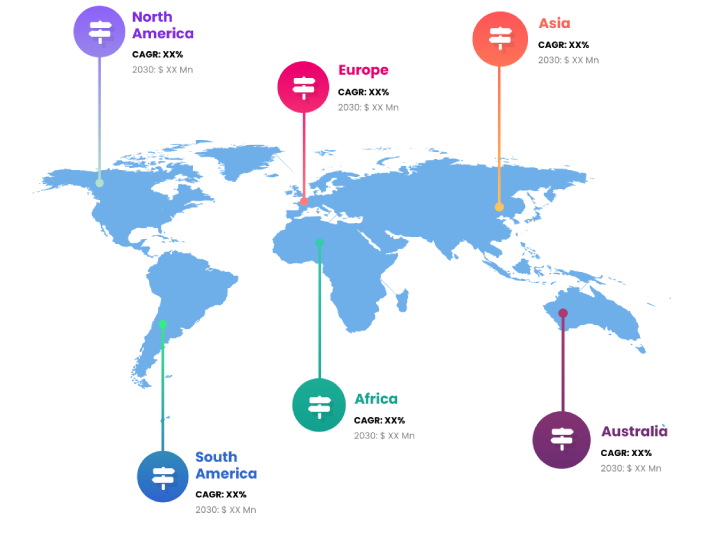
Aviation fuel that is both environmentally friendly and good for planes is called sustainable aviation fuel. The chemistry of sustainable aviation fuels is remarkably similar to that of conventional fossil jet fuel, except the fuel is produced using renewable resources instead of fossils. Carbon emissions are reduced when sustainable aviation fuels are used instead of conventional jet fuel over the fuel's entire lifecycle. To create a more sustainable environment and conform to strict regulatory limits on emissions, the aviation industry is leaning toward reducing carbon footprints. In addition, the aviation industry is adopting a variety of solutions to improve aero-engine efficiency, including design modifications, hybrid and all-electric aircraft, and renewable jet fuels. However, the adoption of sustainable aviation fuel is viewed as the most reliable and feasible alternative solution due to its socio-economic benefits.
Individuals, groups, governments, and enterprises everywhere have been forced to adjust to the new realities brought on by the global economic slowdown caused by the COVID-19 pandemic. Fleets around the world have been grounded due to travel restrictions that have affected both domestic and international flights. The Sustainable Aviation Fuel Industry, like many others, is being hit particularly hard by the COVID-19 epidemic as a result of widespread production delays. As part of the cutback, many older, less efficient planes have been grounded and will not be used again. However, the industry as a whole is likely to hold off on buying new planes with improved technology until demand is higher, carrier solvency is guaranteed, and the price of jet fuel puts pressure on airlines to update their planes with fuel-saving evolutionary technologies.
Emissions should be reduced by 80% of the SAF's value, and sustainability should be improved by using all trash and leftovers. Besides, it lower aviation pollutants compared to fossil jet fuel and increase aircraft performance. As a result of its high calorie count and enhanced availability of oxygen and aromatic compounds. Because of its high energy density and lengthy shelf life, SAF is the aviation industry's go-to fuel. Sustainable aviation fuel is in high demand due to advancements in refining technology and government initiatives to switch to alternative energy sources.
Analysis of the market for sustainable aviation fuel shows that it has been in use since 2008. It's sourced from organic waste and biomass. It might be utilized in any engine that runs on gasoline or diesel if more advanced technology become widely available. This means that SAF businesses can expand into new consumer bases. More value is expected to be added to the market in the coming years as various countries work together with aviation companies to speed up the energy transition process.
Environmental concerns are a driving force in the sustainable aviation fuel (SAF) sector. As people become more conscious of climate change and the negative impacts of greenhouse gas emissions, the aviation industry is under increasing pressure to reduce its carbon footprint. The aviation industry emits a significant amount of carbon dioxide (CO2), the major greenhouse gas. The use of SAF is a practical way to deal with environmental problems and lower emissions.
One environmental benefit of SAF is its ability to significantly reduce carbon dioxide emissions in comparison to traditional fossil fuels. Biomass, old cooking oil, and agricultural wastes are just some of the renewable resources that go into making SAF, making it a cleaner alternative to fossil fuels. Aircraft that implement SAF can lower their emissions greatly, notably their CO2 emissions dramatically. The harmful pollutants nitrogen oxides (NOx) and sulfur dioxide (SO2) emitted by airplanes can also be reduced by using SAF. These pollutants contribute to smog formation, air pollution, and detrimental health effects. By switching from traditional jet fuel to SAF, the aviation industry can help improve air quality and mitigate its negative impact on human health and the environment.
It is in line with the greater international commitment to combating climate change that the aviation industry has adopted SAF. The Paris Agreement, which aims to limit global warming to well below 2 degrees Celsius above pre-industrial levels, has been ratified by a large number of countries. Reduced greenhouse gas emissions from all industries, including aviation, are vital to accomplishing this goal. In order to contribute to these carbon reduction goals, the aviation industry can take use of SAF, which is both feasible and practicable.
Report Coverage
Global Sustainable Aviation Fuel research report categorizes the market for global based on various segments and regions, forecasts revenue growth, and analyzes trends in each submarket. Global Sustainable Aviation Fuel report analyses the key growth drivers, opportunities, and challenges influencing the global market. Recent market developments and Sustainable Aviation Fuel competitive strategies such as expansion, product launch and development, partnership, merger, and acquisition have been included to draw the competitive landscape in the market. The report strategically identifies and profiles the key Sustainable Aviation Fuel market players and analyses their core competencies in each global market sub-segments.
| REPORT ATTRIBUTES | DETAILS |
|---|---|
| Study Period | 2017-2030 |
| Base Year | 2022 |
| Forecast Period | 2022-2030 |
| Historical Period | 2017-2021 |
| Unit | Value (USD Billion) |
| Key Companies Profiled | Sasol, Preem AB, LANZATECH, World Energy, Northwest Advanced Biofuels, LLC., Red Rock Biofuels, Fulcrum BioEnergy, Inc., Aemetis, Inc., TotalEnergies SE, OMV Aktiengesellschaft, Neste Oyj, SKYNRG, Gevo Inc., Eni SPA, Avfuel Corporation, SG Preston Company, Sundrop Fuels Inc., Ballard Power Systems, Velocys, ZeroAvia, Inc. |
| Segments Covered | • By Product |
| Customization Scope | Free report customization (equivalent to up to 3 analyst working days) with purchase. Addition or alteration to country, regional & segment scope |
Key Points Covered in the Report
- Market Revenue of Sustainable Aviation Fuel Market from 2021 to 2030.
- Market Forecast for Sustainable Aviation Fuel Market from 2021 to 2030.
- Regional Market Share and Revenue from 2021 to 2030.
- Country Market share within region from 2021 to 2030.
- Key Type and Application Revenue and forecast.
- Company Market Share Analysis, Sustainable Aviation Fuel competitive scenario, ranking, and detailed company
profiles. - Market driver, restraints, and detailed COVID-19 impact on Sustainable Aviation Fuel
Market
Competitive Environment:
The research provides an accurate study of the major organisations and companies operating in the global Sustainable Aviation Fuel market, along with a comparative evaluation based on their product portfolios, corporate summaries, geographic reach, business plans, Sustainable Aviation Fuel market shares in specific segments, and SWOT analyses. A detailed analysis of the firms' recent news and developments, such as product development, inventions, joint ventures, partnerships, mergers and acquisitions, strategic alliances, and other activities, is also included in the study. This makes it possible to assess the level of market competition as a whole.
List of Major Market Participants
Sasol, Preem AB, LANZATECH, World Energy, Northwest Advanced Biofuels, LLC., Red Rock Biofuels, Fulcrum BioEnergy, Inc., Aemetis, Inc., TotalEnergies SE, OMV Aktiengesellschaft, Neste Oyj, SKYNRG, Gevo Inc., Eni SPA, Avfuel Corporation, SG Preston Company, Sundrop Fuels Inc., Ballard Power Systems, Velocys, ZeroAvia, Inc.
Primary Target Market
- Market Players of Sustainable Aviation Fuel
- Investors
- End-users
- Government Authorities
- Consulting And Research Firm
- Venture capitalists
- Third-party knowledge providers
- Value-Added Resellers (VARs)
Market Segment:
This study forecasts global, regional, and country revenue from 2019 to 2030. INFINITIVE DATA EXPERT has segmented the global Sustainable Aviation Fuel market based on the below-mentioned segments:
Global Sustainable Aviation Fuel Market, By Fuel Type
Biofuel
Hydrogen Fuel
Power to Liquid Fuel
Global Sustainable Aviation Fuel market, By Aircraft Type
Fixed Wings
Rotorcraft
Others
Global Sustainable Aviation Fuel Market, By Platform
Commercial Aviation
Military Aviation
Business & General Aviation
Unmanned Aerial Vehicle
Global Sustainable Aviation Fuel market, Regional Analysis
- Europe: Germany, Uk, France, Italy, Spain, Russia, Rest of Europe
- The Asia Pacific: China,Japan,India,South Korea,Australia,Rest of Asia Pacific
- South America: Brazil, Argentina, Rest of South America
- Middle East & Africa: UAE, Saudi Arabia, Qatar, South Africa, Rest of Middle East & Africa
You will get in-depth and extensive sustainable aviation fuel market market research and competitor analysis for your business to help you develop more profound insights into the sustainable aviation fuel market Market.
Through INFINITIVE Data Expert is a professional Market Research services, I will identify the sustainable aviation fuel market market size, demand & opportunities, growth rate, and target audience with a comprehensive analysis of your competitors.



